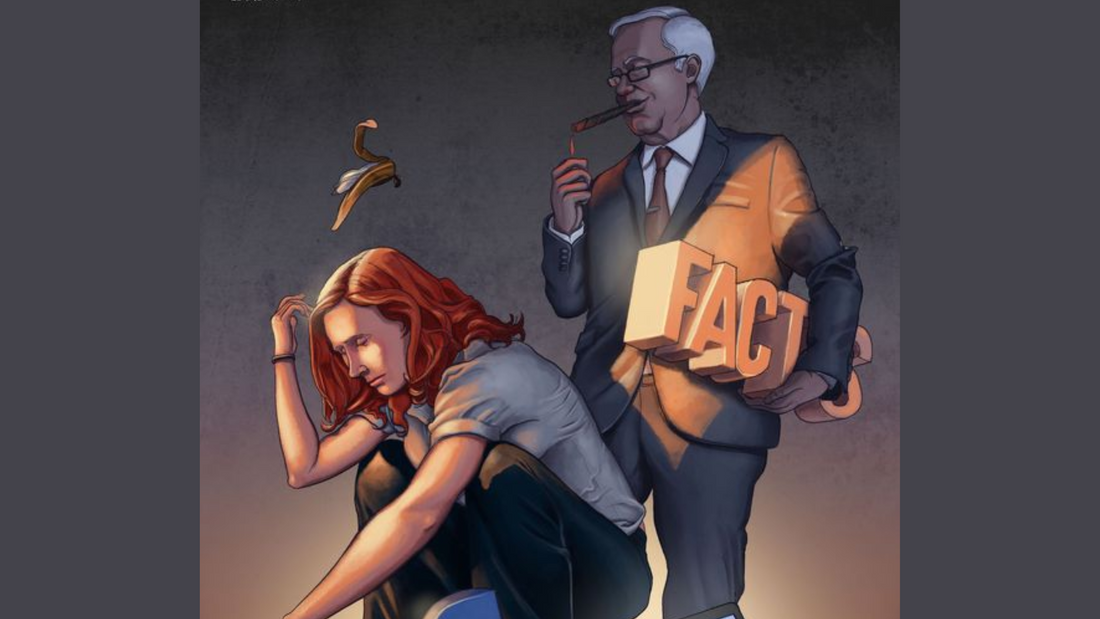
The Role of Media in Shaping Mental Health Narratives
Interns KKYShare
By Sahana
There is a popular adage about the media that goes, “Whoever controls the media, controls the mind.” This comes with its own costs and benefits that we the viewers regularly have to incur. When it comes to the role of media in a topic such as mental health, one must always indulge in content with a pinch of salt. Their dramatization of sensitive topics might lead to adverse impacts on our conception of mental health.
One such instance was when a popular Bollywood actor committed suicide. Months after Sushant Singh Rajput's passing, speculation of "suicide" and "mental illness" were commonplace. Since then, we could closely observe the role of the media and how it portrays mental illness. Following his passing, reporters, actors, and just about everyone else began discussing the "do's and don'ts" of mental illness without proper knowledge. People began commenting on how "he did not look depressed" in their conversations. This, along with several other instances in the media, reflected that we as a society have failed to grasp mental health.

What the Media thinks about Mental Health?
The media's portrayal of mental health is not only superficial; it's also reductionist. Contrary to what the media portrays, depression does not necessarily indicate that a person would constantly consider ending their life. Depression comes in many types and often this is what the media refuses to accept. Some Movies like Dear Zindagi have tried to dispel this idea. This indicates that Mass media has the potential to accurately exhibit and educate the public about mental health. But, sadly it is not happening in most cases of media reporting incidents of suicide where they tend to dramatize the whole event.
When we consider how the media has portrayed someone with a mental condition, it becomes even more terrifying. People with mental illnesses are frequently portrayed as aggressive, murderous, and unfit for employment in films and television shows.
However, the media fails to convey to the general public that relatively few persons with serious mental illnesses commit violent crimes that are actually far less severe than those committed by supposedly "normal" people. Moreover, the media also sometimes oversimplifies mental illness. For instance, an individual that likes things organized or washes hands frequently is ‘diagnosed’ with obsessive-compulsive disorder (OCD) by the media. But they ignore or don't delve into the obsessive thoughts that fuel those compulsions.
We always think that the treatment for mental disorders is psychiatric medicine, and it is only for those who are severely affected by it. This is because of the portrayals of shock therapy that are widely used for said mentally “unstable’’ characters of a movie. However, the media neglects to include additional mental health specialists and different types of therapeutic approaches. Due to the media's predilection for portraying psychiatry as the main discipline of mental health, many people are unaware of the various fields of mental health, the various mental health professionals, and solutions beyond medication. People's unmet demands are a result of a dearth of mental health specialists in India as well as stigma and a general lack of knowledge about various mental health providers. The deinstitutionalization and community mental health movements have been badly harmed by the media's support for psychiatric care as the only effective treatment for mental health problems.
Additionally, the media ignores the importance of seeing mental health from a broad perspective. It concentrates primarily on biological aspects rather than acknowledging that many other elements, including caste, class, gender, financial condition, and religion, have an impact on a person's mental health. In the end, this is directed towards someone who may be doubting their ability to handle challenging circumstances. Understanding the many causes of mental illness will help people make better decisions.

Can the Media Change Perceptions?
Media is a tool that can modify behaviour, spread positive attitudes, and boost understanding. It is logical to suppose that if the media may increase the stigma surrounding mental illness, it can also do the opposite. Media may significantly shape attitudes, beliefs, and behaviors relating to health when used properly. People can be informed about mental illness and disorders through the use of documentaries. After watching programmes curated by the Public Broadcasting Services like “A Brilliant Mind” explaining the condition, schizophrenia was viewed as less hazardous. Reading an article with corrective information can help people with mental problems to be more accepted in society. It also reduces the stigma associated with them. With this in mind, the National Mental Health Programme of India has made an effort to harness media attention to decrease stigma and promote getting treatment. The new Mental Health Care Act also seeks to effectively communicate its many requirements through the use of media.
TV programmes and films should portray mental illness in a realistic manner. I believe that inspiring success stories of those who have overcome mental illness should be featured in the media. Additionally, diverse ways of seeking help should be pushed on platforms like blogs and social media as well as on large platforms like news channels and newspapers.
REFERENCES:
- Saini, B. (2023, June 7). On Sushant Singh rajput’s birthday: An important lesson on mental health. SheThePeople. https://www.shethepeople.tv/top-stories/opinion/sushant-singh-rajputs-birthday-mental-health-issues/
- Srivastava, K., Chaudhury, S., Bhat, P. S., & Mujawar, S. (2018, January). Media and Mental Health. Industrial psychiatry journal. https://www.ncbi.nlm.nih.gov/pmc/articles/PMC6198586/
- K, P. S. (2014). Media and mental illness: Relevance to India. Journal of Postgraduate Medicine, 60(2), 163–170. https://jpgmonline.com/article.asp?issn=0022-3859;year=2014;volume=60;issue=2;spage=163;epage=170;aulast=Padhy

